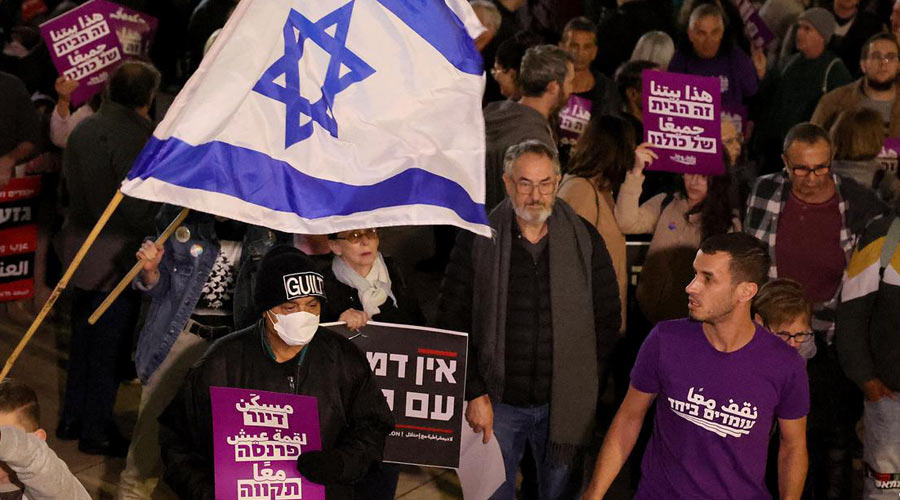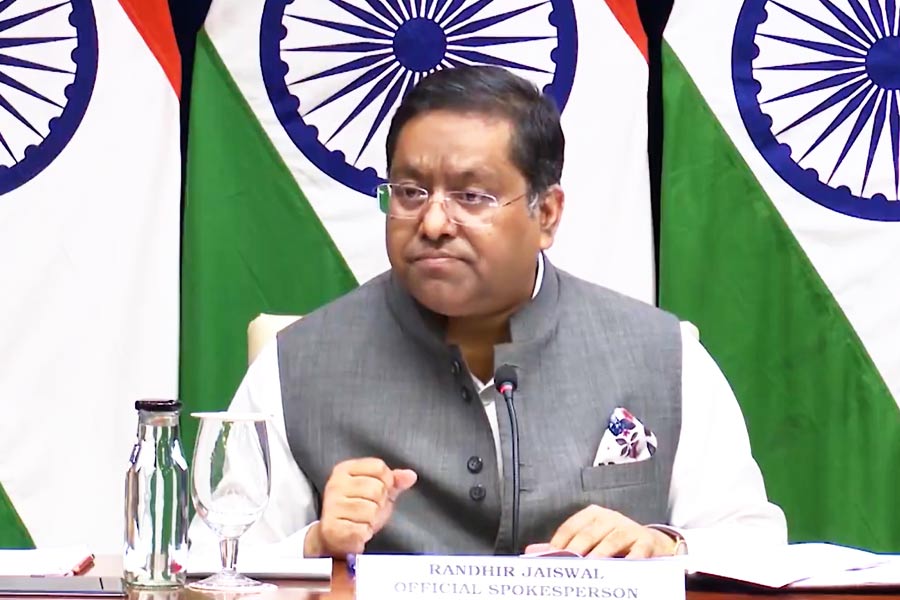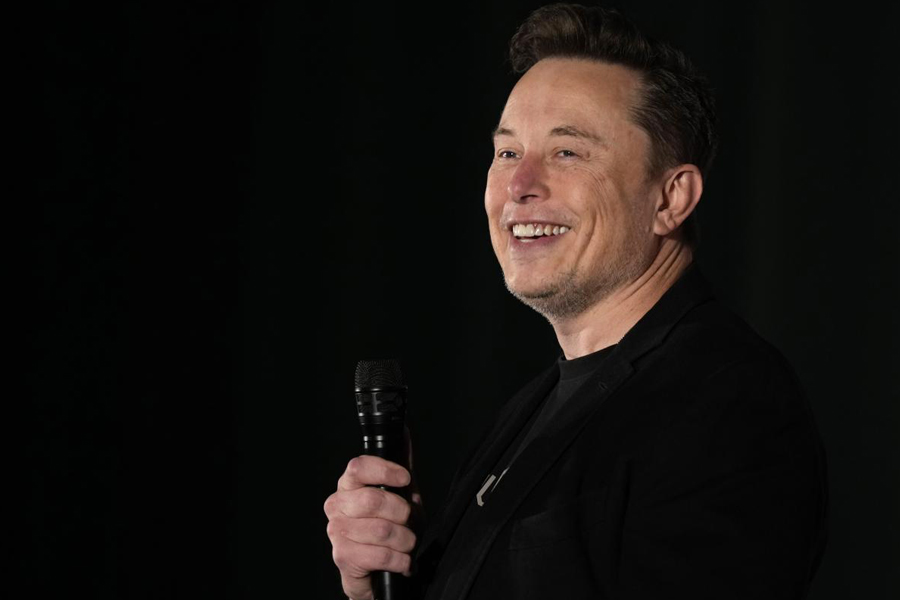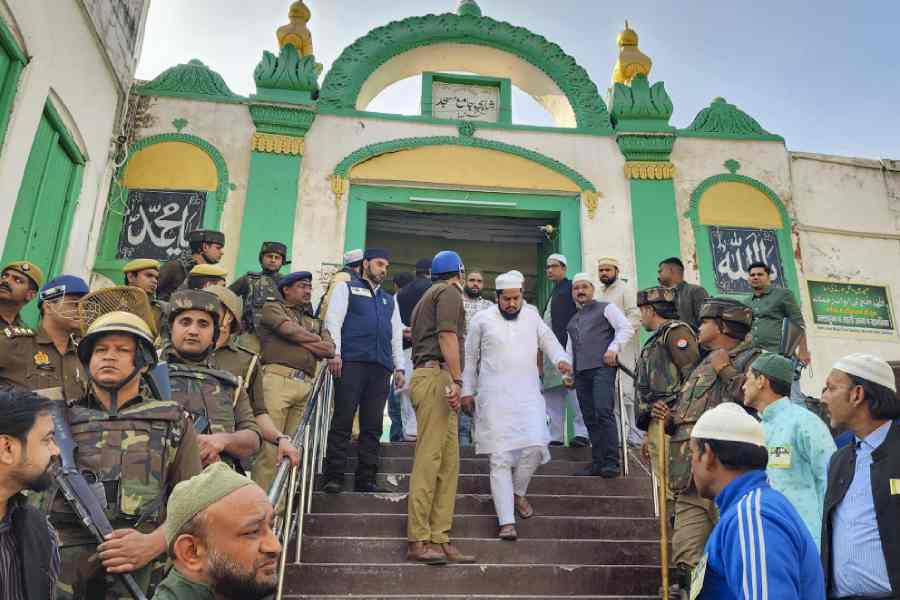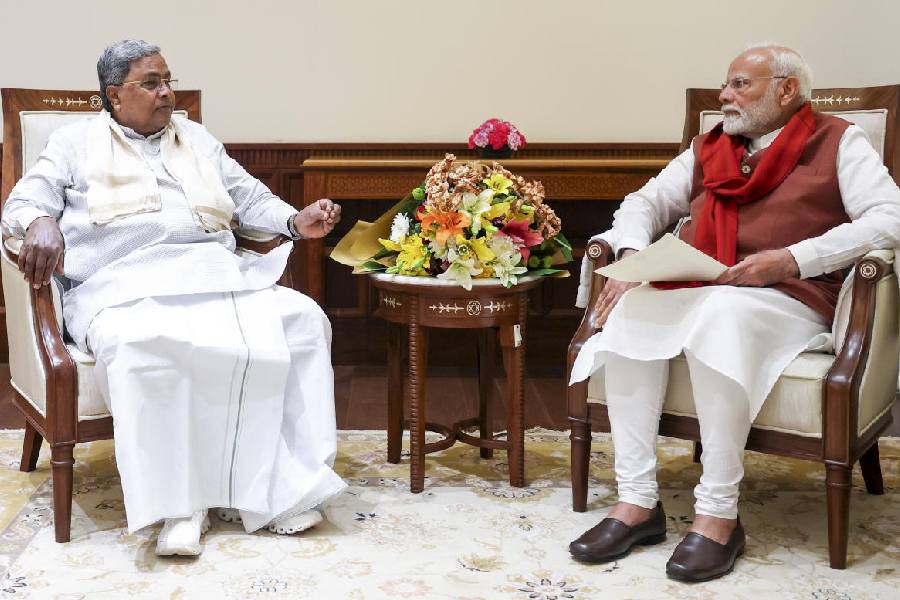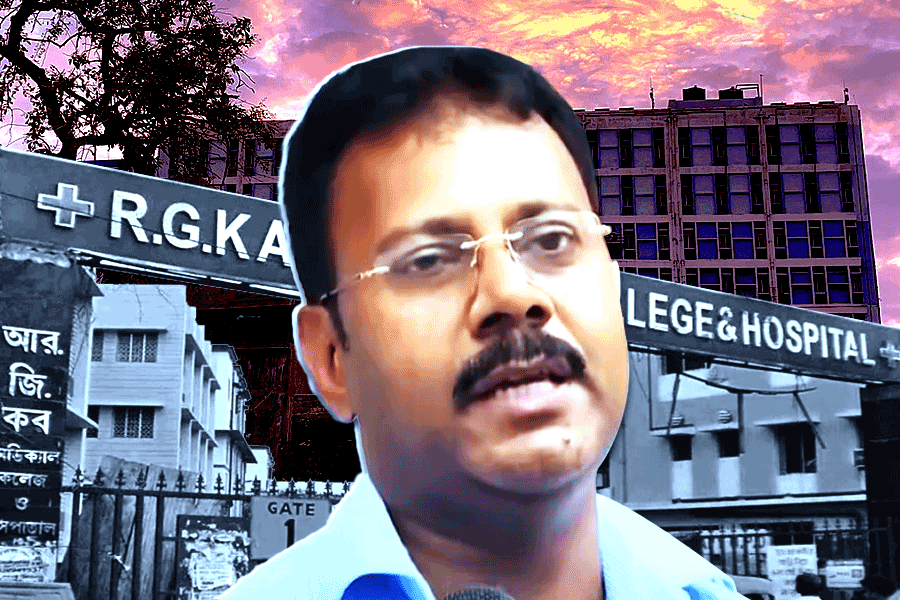Several thousand people staged a demonstration in Israel's economic and cultural hub of Tel Aviv on Saturday to protest the country's new government, a coalition with far right and ultra-Orthodox Jewish parties under the leadership of Prime Minister Benjamin Netanyahu.
Among other issues, protesters voiced concern that democracy in the Middle Eastern country could be in danger, with new Justice Minister Yariv Levin planning a number of controversial judicial reforms that could undermine the separation of powers.
What happened at the demonstration?
Protesters marched through the streets of the coastal city after first gathering in its center. Many waved Israeli and rainbow flags and held up banners with anti-Netanyahu slogans.
Among the banners were ones bearing the words "crime minister," a reference to yearslong investigations of Netanyahu involving fraud, breach of trust and corruption.
Other signs featured slogans including "Democracy in danger" and "Together against fascism and apartheid."
"Together with thousands of amazing demonstrators we went out to protest and shout in a clear voice: Our country cannot be destroyed! We will continue to fight for our democracy," tweeted Merav Michaeli, leader of the Israeli Labor Party.
What are the protesters' main concerns?
One main focus of the demonstrators' protest was the judicial reforms planned by the new justice minister.
Levin wants a majority in parliament to be able to overrule decisions by the Supreme Court, as well as to change the way the body that appoints judges is composed.
Opposition leader Yair Lapid has denounced the reforms, saying on Twitter that it "endangers the entire legal system of the State of Israel."
Plans to expand Jewish settlements in the occupied West Bank also have some worried about the consequences of this move for Israeli-Palestinian relations.
What else is the government planning?
The new Cabinet, which is religiously conservative, was sworn in last week, with several ministerial posts given to ultranationalists
. Along with its planned expansion of West Bank settlements, the new government envisages several social reforms that are of concern to members and supporters of the LGBTQ community.
Among other things, it plans to roll back laws on gay adoption and surrogacy.
The far-right ultranationalist party Noam, which helped Netanyahu's bloc to victory, also wants to cancel gay pride events in Tel Aviv.
Its leader, Avi Maoz, is on record as saying that queer people are a threat to the family.
Netanyahu, 73, who won the election on November 1, has already served as premier longer than anyone in Israeli history, leading the country from 1996-1999 and 2009-2021.

